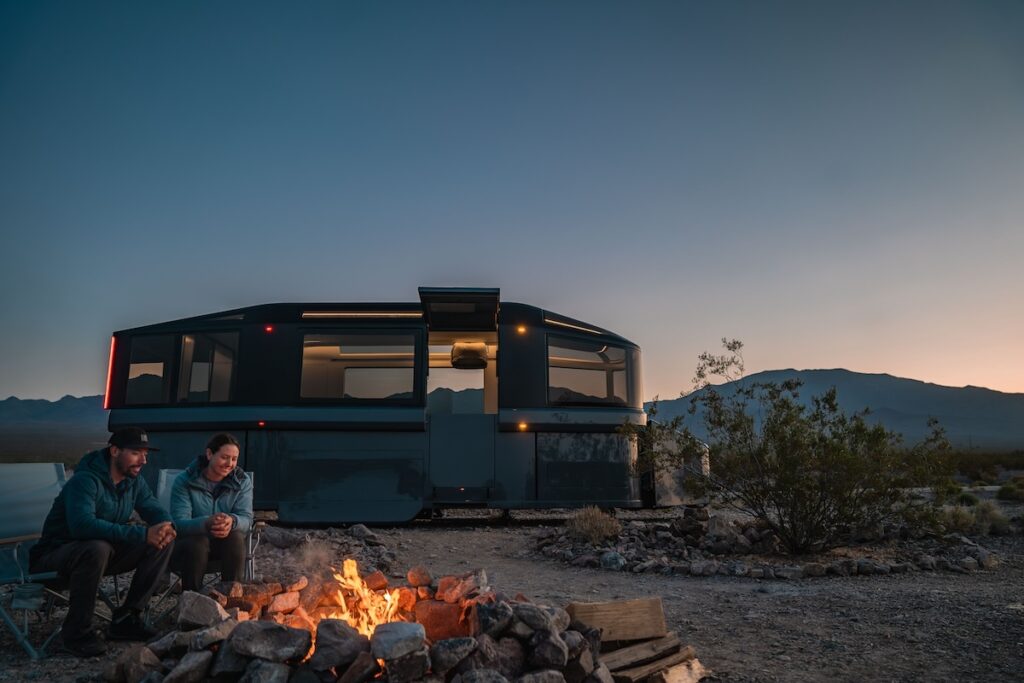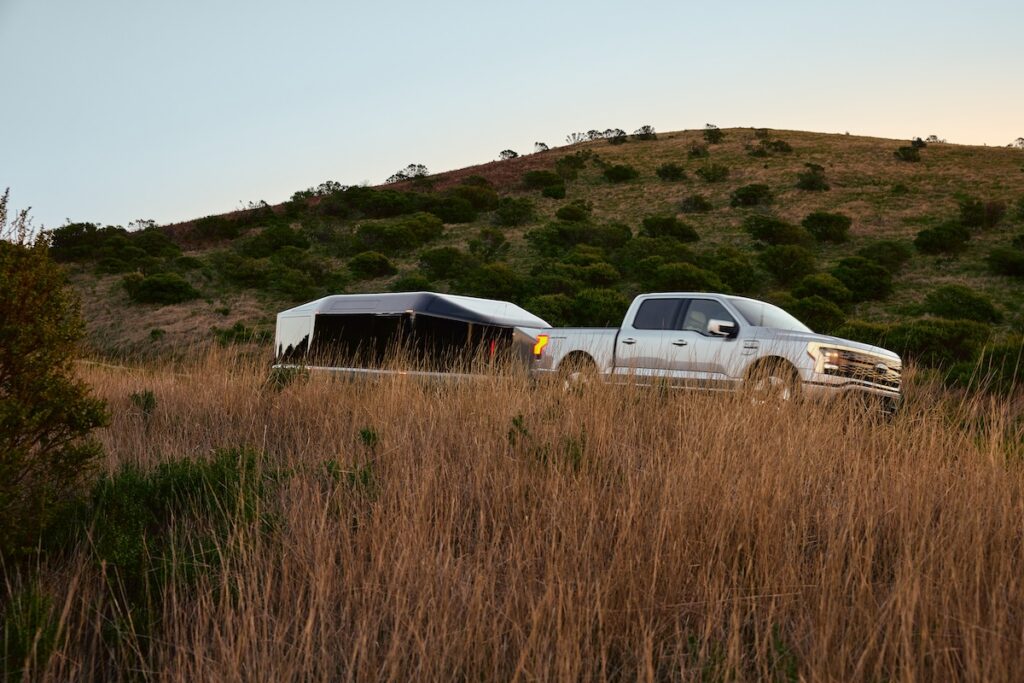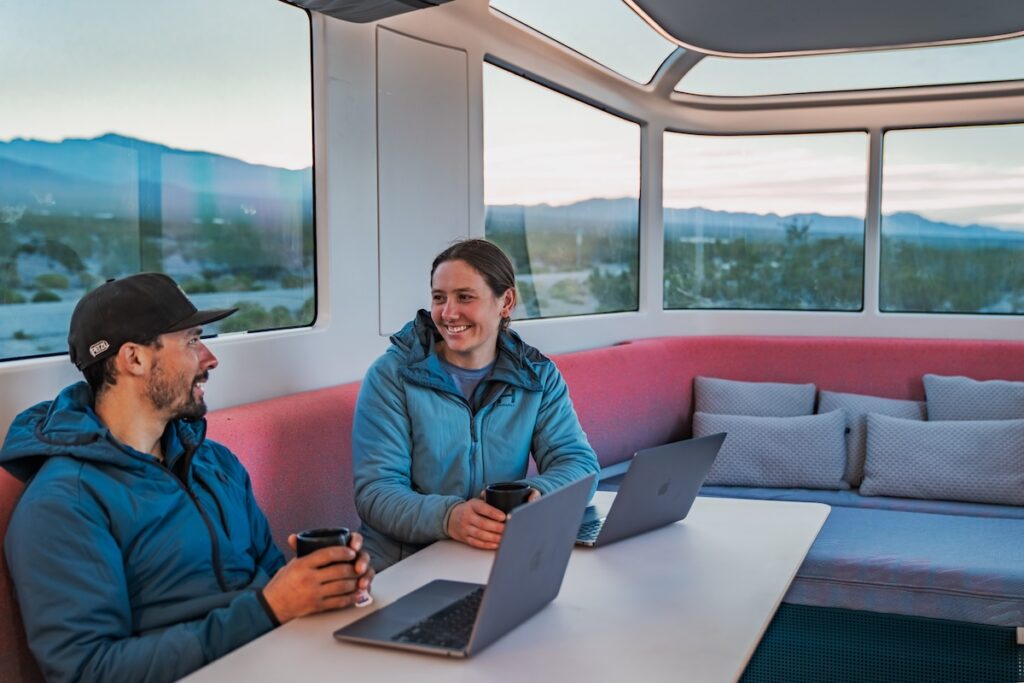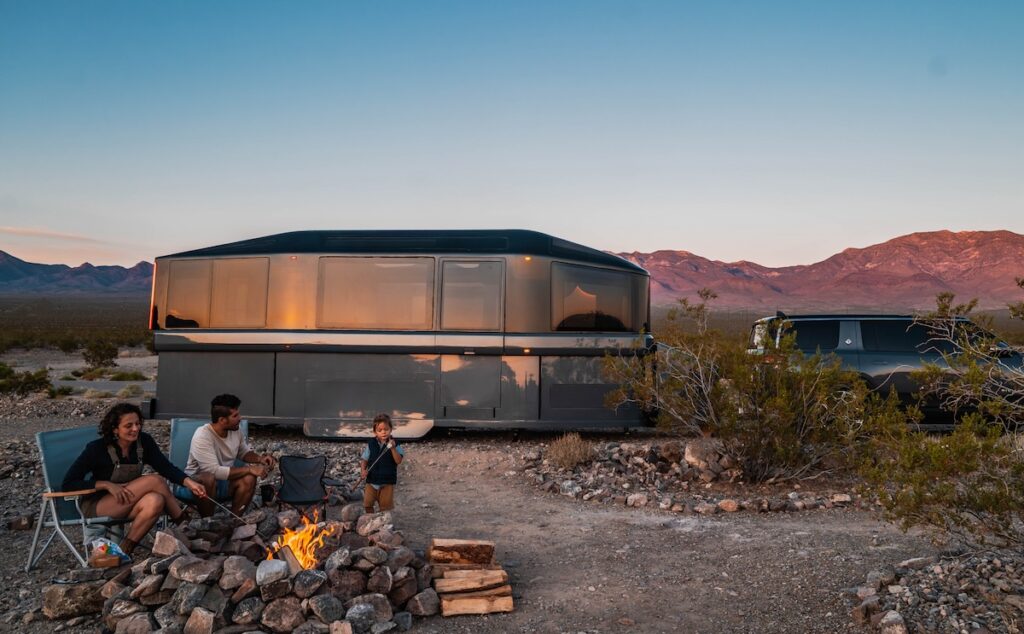Backed by a recent $34 million Series B fundraise that included investment from TechNexus in partnership with RV manufacturer THOR Industries, Lightship is betting on an electric future for the RV industry.

The journey to build an all-electric RV began with waiting for a food truck.
Outside of Tesla’s headquarters in Palo Alto, California, a rotating collection of food trucks would line up at lunch time, each one loudly spewing exhaust into the next. For Tesla employee Ben Parker, he knew a solution to this problem sat just a few feet away inside Tesla’s offices, and he set out on a mission to electrify food trucks in the Bay Area.
As that business plan evolved, Parker discovered the RV industry suffered from many of the same issues faced by food trucks. And after spending the Covid summer of 2020 traveling on an RV through the American west, Parker turned his attention to electrifying the RV industry. He was introduced to his co-founder Toby Kraus, another Tesla vet, and the two began the process of building the first American-made, all-electric RV.
That audacious goal spawned their startup Lightship, which is designing and producing aerodynamic, battery-powered trailers. The company’s flagship RV, called L1, will begin production at its new facility in Broomfield, Colorado later this year.
The L1 aims to reimagine the look and function of an RV to change the camping experience. Featuring an aerodynamic design and an electric powertrain that allows the RV to propel itself while you drive, the L1 allows for near-zero range or efficiency loss for the towing vehicle, the company says.

Backed by a $34 million Series B fundraise earlier this year that included investment from TechNexus in partnership with leading RV manufacturer THOR Industries, Lightship is betting on an electric future for the RV industry.
“If we do this right … we will set the standard for many trailers to be built like this in the future,” Parker said. “You can’t sell electrification and sustainability for their own sake. You have to use those ideas to promote a better product experience and a better way of doing something.”
“Electrification can have a big impact on the customer experience,” he added.
Reinventing the RV
When designing the interior of its flagship electric RV, Parker said it was important “to not treat the living space like a Rube Goldberg machine.” Rather than spending excess time converting beds to tables and constantly rearranging the space, Lightship set out to simplify an RV’s interior, Parker said.
“You want to spend more time camping and less time tending to your RV,” he said.

The L1, using solar power, can also serve as a backup home generator or as a source of power for an electric vehicle. As an RV camper, it offers seven days of off-grid living, the company says.
The L1 has a starting price of $125,000, or $118,400 after an EV tax credit. The startup is currently taking pre-orders for the L1.
“Lightship’s sleek, aerodynamic design has generated widespread brand recognition, and early adopters are eagerly anticipating order fulfillment following the successful facility launch this summer,” said Cristin Pacifico, director of venturing at TechNexus. “I’m excited to see how Lightship interacts with this new generation of electric-RVers, and the partnerships they build as they continue to innovate at the intersection of electrification and outdoor recreation.”
From Tesla to the campsite
Parker and Kraus didn’t cross paths during their tenures at Tesla. Parker worked in product and design while Kraus was in finance. But their time spent at Tesla gave them a deep understanding of the EV market and a shared ethos of building a sustainable business.
Their experience at Tesla also helped them develop a risk tolerance to undertake the business challenge of building a mass-market electric vehicle, Parker said.

“You sort of have to be an intrepid spirit to want to work on something that big when you know there’s still many, many ways for it to fail,” he said.
Now, Lightship aims to capture the market in a similar way to Tesla, bringing an electric upgrade to a new category of vehicles.
